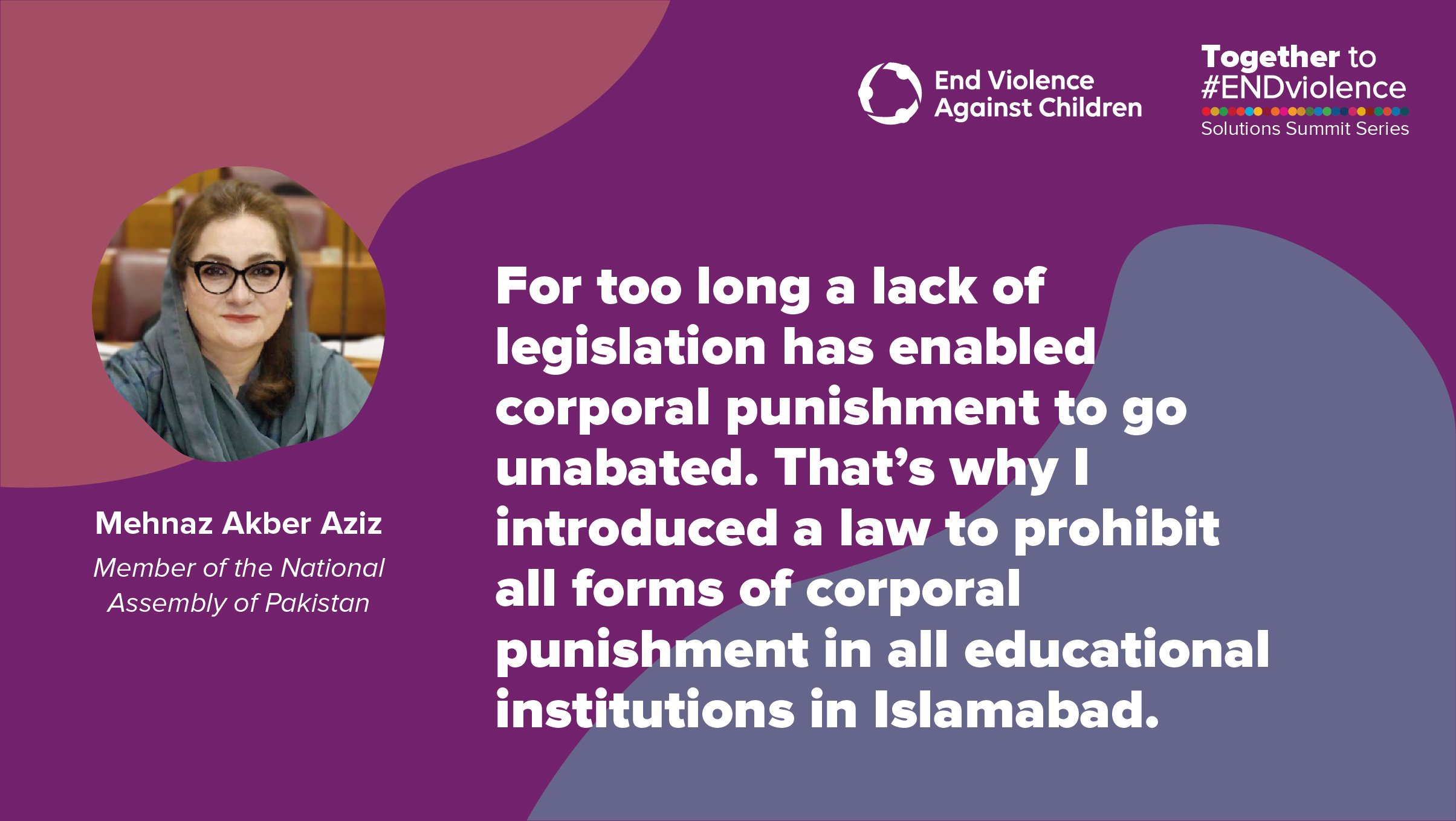IPNEd Co-Chair joins world leaders to commit to end violence against children
Yesterday IPNEd Global Co-Chair, MNA Mehnaz Akber Aziz, joined heads of government, children, survivors, celebrities, royalty and leaders from across sectors and continents at the Together to #ENDViolence Leaders’ Event.
The Together to #ENDViolence campaign was launched by the End Violence Partnership in December 2020 to raise awareness, share solutions, and catalyze action and investment to end violence against children.
At the high-level event more than 40 leaders from across the world outlined commitments and actions to accelerate progress to end violence against children.
A global epidemic of violence against children
Violence against children continues to impact one billion children every year, with devastating long-term consequences for individuals, families, and societies.
Much of that violence occurs in educational settings at the hand of teachers and caregivers. Corporal punishment by school staff is not the only form of violence that children in educational settings are subject to, but it is a particularly egregious and harmful one, with serious negatives impacts for children’s development, education and wellbeing.
Accelerating the universal prohibition of corporal punishment in educational settings
Urgent action is required to catalyse political and financial commitments to end violence against children by 2030.
IPNEd’s Global Co-Chair MNA Mehnaz Akber Aziz inspired participants from over 135 countries by showing that progress is possible. Last year, Mehnaz passed legislation in Pakistan’s National Assembly, which banned corporal punishment in educational institutions in the Islamabad Capital Territory.
Legislation is key
Mehnaz was invited to address the Together to #ENDviolence Leaders’ Event to share her success in legislating to prohibit corporal punishment.
She acknowledged that for too long that a lack of legislation has enabled corporal punishment to go unbated:
“When I entered politics as an elected parliamentarian four years ago, my first priority was to put forward a Bill to prohibit corporal punishment.
“It took me years in the parliament of having a bipartisan lobby, working with the media and the judiciary, and with international stakeholders, especially the International Parliamentary Network for Education, but last year the legislation passed for the Islamabad Capital Territory”.
“Parliamentarians must now come together to get similar legislation passed to make the world a better place for children. I look forward to joining hands with parliamentarians globally to ending violence against children.”
Our collective commitment
IPNEd is committed to working with legislators in the 62 states where corporal punishment at school remains lawful to draft, pass and implement legislation to prohibit the practice.
Prohibiting corporal punishment in law and eliminating it in practice in every country of the world and in all educational settings is an urgent priority. It is a prerequisite to all of IPNEd’s work to achieve the internationally agreed goal of quality, inclusive education for all, SDG 4.
Our hope now is that Mehnaz's leadership inspires similar legislative action not only across Pakistan but across Asia and the world. The International Parliamentary Network for Education will be there to support, coordinate and amplify those efforts.
Find out more about IPNEd’s commitment to prohibit corporal punishment in schools and educational institutions here.



